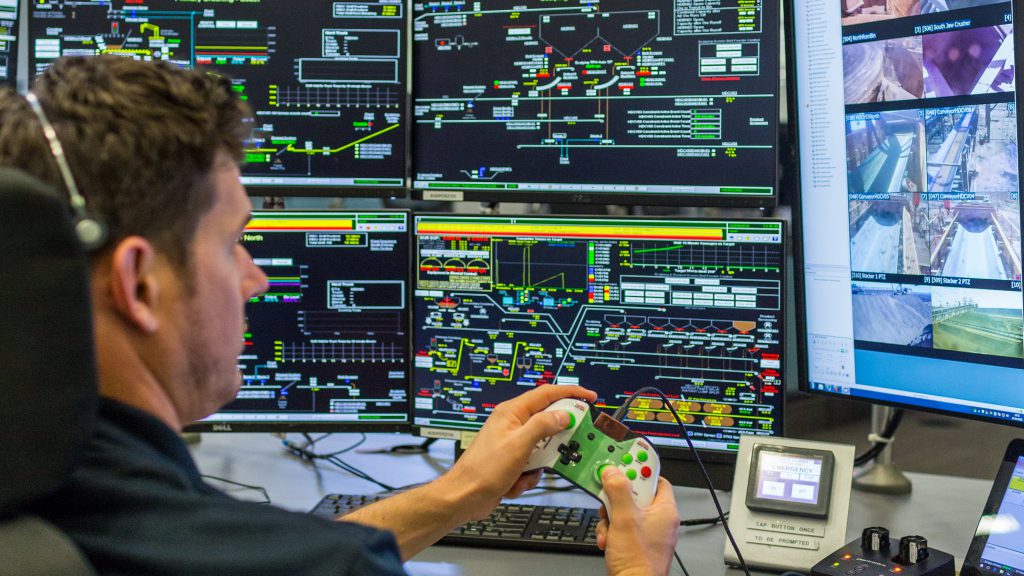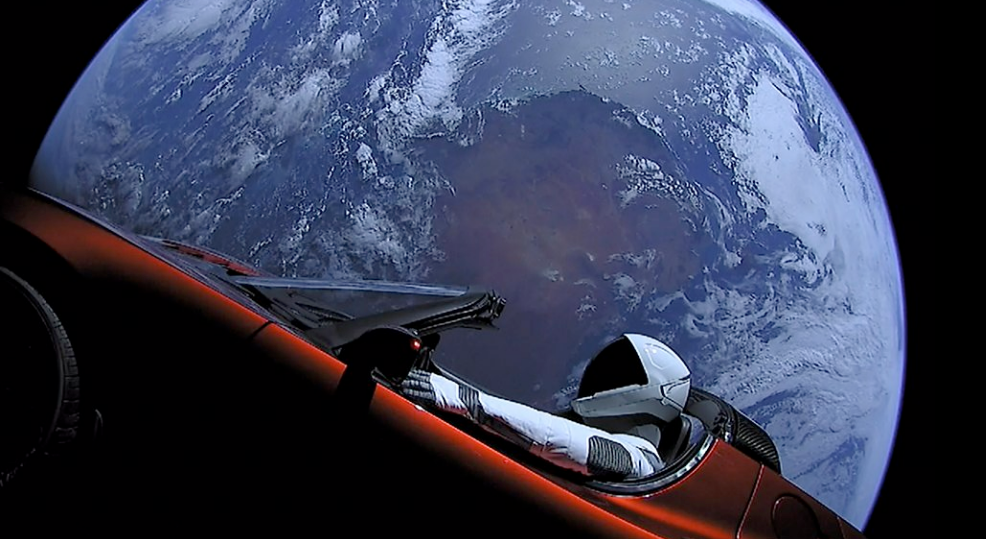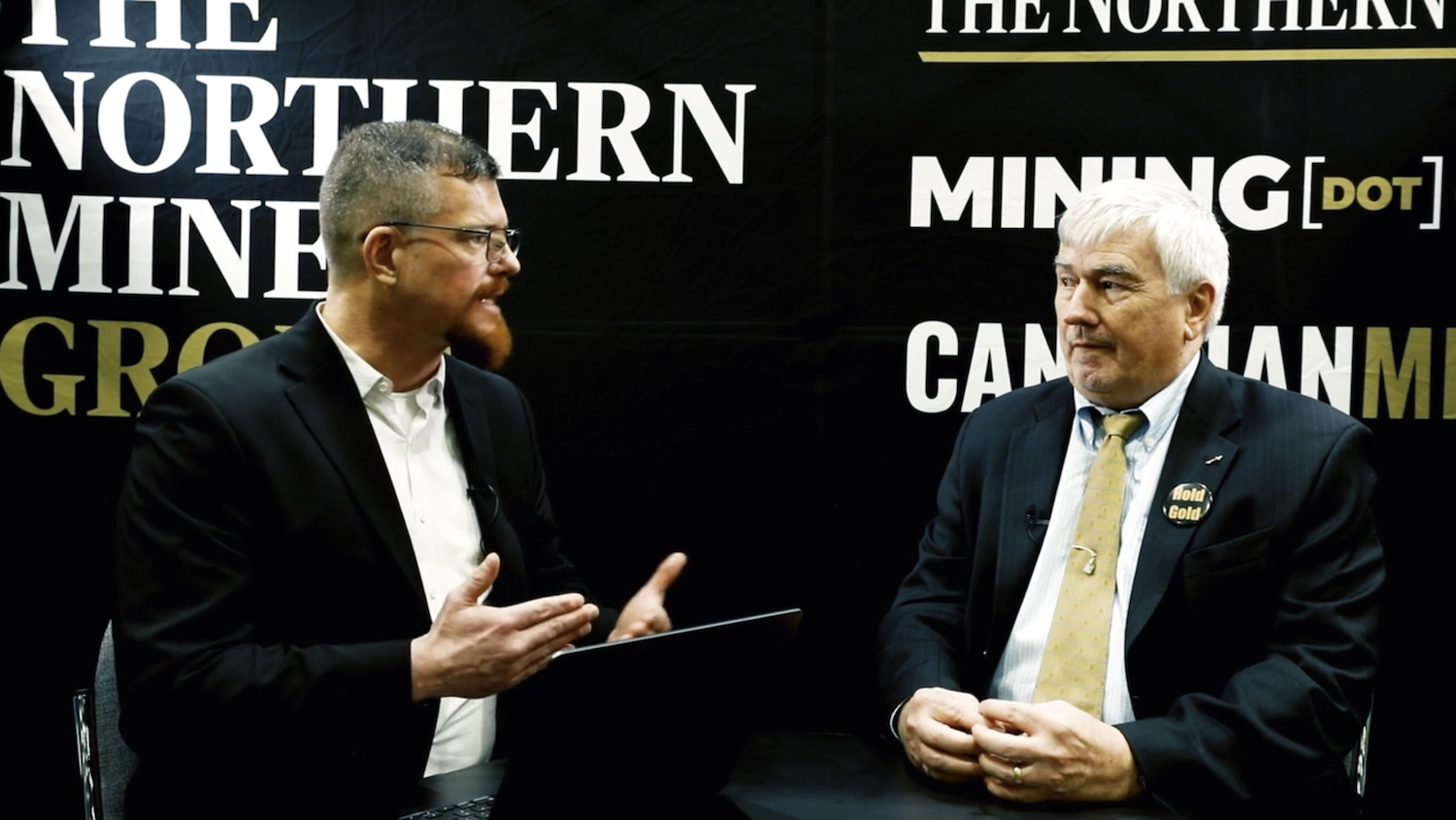Should mining CEOs be concerned about ‘tech heads’?

What do Elon Reeve Musk FRS, William Henry Gates III, Jeffrey Preston Bezos, and Sir Richard Charles Nicholas Branson have in common — apart from their money?
Quite a lot, as it turns out. All of them have made their fortunes on the back of innovative, creative ideas that push boundaries, as have many others like them. They’re invariably involved in technology, and in taking new ideas to new levels.
Elon Musk is of course synonymous with groundbreaking space company SpaceX, and Tesla, the electric car that needs battery and rare earth minerals. Via SpaceX, he’s just launched what he was told would never be possible – a privately owned rocket complete with live astronauts on board.
This follows his launch of the first-ever car into space back in February 2018, something else he was told wasn’t possible. One does not tell people like Elon Musk et al that things are ‘not possible’ it seems.
If you’re interested in the galactic travels of his $100K cherry red Tesla Roadster convertible, complete with dummy driver Starman at the wheel listening to David Bowie, this site keeps track of it. Yes, nearly 2 and a half years later the car is still out there circumnavigating our solar system. Scientists calculate that it will come close enough to earth in 2091 to be seen with the most powerful telescope we have currently.

Bill Gates was instrumental in developing the technology that allowed us to bring you this blog post. The mammoth company he founded, and still owns a considerable part of, is likewise committed to developing ethical sustainable technical solutions for the world – just ask them!
These days though Bill himself is heavily into green technology, saving lives, improving education, and a range of other philanthropic ventures. In particular, he’s very keen on developing a more sustainable circular economy where the focus is on limiting the impact ‘things’ like raw materials have on the environment over their entire life cycle, not just at any one stage of that cycle.
Sir Richard Branson and his Virgin Group, likewise, have been at the innovative forefront of a number of different sectors over the years. They’ve dabbled heavily in travel and leisure, entertainment, music, health, wellness, financial services, telecommunications, and media. Sir Richard is also notable for using his clout to try and help change the way humanity does things so the environment doesn’t suffer so much.
In the past, he’s criticised the Australian government over its coal mining policies. Plus, he’s on record as saying he has “long felt that solar, wind, water, and smart use of biomass have the potential to meet nearly all of our energy needs in the long term and will eventually eliminate the need to dig up our beautiful planet in search for more fossil fuels.” Ultimately, the best way to help this happen is by getting involved in the industry that digs up ‘our beautiful planet’.
Tech billionaires are more interested in mining as part of a holistic approach to producing cleaner, greener, more sustainable outcomes for their own businesses
To this end, he’s set up companies and initiatives like Virgin Unite, the Virgin Earth Challenge and The Carbon War Room. For Virgin team members there is the Special Award for Environment, part of the Virgin Stars of the Year awards. He’s also involved with OceanElders and has invested in various other initiatives that are looking for sustainable ways to do things.
Jeff Bezos created that behemoth amongst all online shopping behemoths called Amazon. As history has faithfully recorded, his uncanny predictions that the Internet was the place to be if you wanted to sell a lot of books (and other stuff), and that if you made it easy for people to buy online they would, ultimately proved to be right on the money (and made him a lot of money. These days he’s the richest person on earth.)
Amazon has a lot invested in technology and is at the forefront of some pretty amazing developments in the tech space. In fact, today the company is known as much for being a ‘technology company’ as it is for its vast inventory of online products. It stands to reason then, that he too has a vested interest in ensuring the company moves towards optimal ethical sustainability.
Tech billionaires’ growing interest in mining
So it really shouldn’t come as too much of a surprise to learn that these and other tech magnates just like them have a growing interest in mining.
However, they’re not especially looking at the industry as a way of bumping up their investment portfolios, although we’re sure that consideration does come into it. Rather, they’re more interested in it as part of a holistic approach to producing cleaner, greener, more sustainable outcomes for their own businesses, and ultimately, as they see it, for the world in general. Gates, Bezos and Branson for example are major backers of BEV.
BEV – out to help change the future of energy
BEV stands for Breakthrough Energy Ventures. As the name suggests, BEV is a fund that invests in energy technologies, notably ‘ground breaking’ energy technologies. In 2019, it and venture capital company Andreessen Horowitz (A16Z) invested in KoBold Metals, an exploration start-up with a finger in a number of ethical battery minerals projects, notably cobalt.
BEV also helped out Lilac Solutions with $20 million in Series A funding. Lilac is a mining technology company whose owners are keenly interested in changing lithium production for the better.
Isolated investments or part of a grand plan?
If it didn’t, we wouldn’t have half the technology we do. The Bill Gates’, Richard Bransons, Elon Musks, and Jeff Bezos’ of this world consistently turn impossible ideas into economic reality and make a fortune.
It may be tempting to think tech investments in mining are random, made as particular projects pique the interests of savvy billionaires and venture capital funds. But are they? The term ‘disruptive change‘ should be ringing a few alarm bells. Most mining companies prefer incremental change. It’s tamer, less likely to ruffle feathers, and ‘disrupt’ established processes and procedures.
Tech billionaires are usually billionaires because they have a habit of pushing boundaries and forcing change, which opens up huge new markets for their products. Indeed, the tech world in general thrives on disruption, on rearranging the way we do things.
The term ‘disruptive change’ should be ringing a few alarm bells. Most mining companies prefer incremental change
Jeff Besos was told selling books online wouldn’t take off. Not only did it take off but we can now buy and read books totally online if we want to. Indeed, thousands do courtesy of tech gadgets like Kindle.
Elon informed the world that he was going to send a car into orbit around the earth, and 12 months later did just that. When he first expressed an interest in privatised space exploration, he was told it wasn’t possible. Dragon 2, his first spaceship with astronauts on board, is now on its way into space.
Vertical integration as a tech business model
It’s logical to assume Elon’s casual tweet about getting involved in mining will pan out the same way his space ventures have. It makes sense for him to do so too. The batteries for his Tesla cars need minerals like copper, cobalt, and lithium. If he gets involved in their production at source, he’s ensuring uninterrupted supply. Not only that, he’s also making sure it’s an ethical and sustainable supply. It’s a business model called ‘vertical integration‘.
He’s not alone in this either. Luxury car manufacturer BMW has committed to using only batteries made with cobalt and lithium from ethical supply lines in its growing fleet of electric cars. The company has publicly revealed their cobalt sources (Australia and Morocco) for some time now.
Late last year they signed a deal that will see them buying all the lithium for their 5th generation battery cells directly from Mt Marion in Western Australia. Likewise, moving forward they will be sourcing all their own cobalt as well. These minerals will then be sent to their battery cell manufacturers CATL and Samsung SDI, who will use it to make BMW’s batteries. Once again, we’re seeing ‘vertical integration’ at its finest.
Give this trend a few years and we’ll almost certainly see more and more companies interested in sustainability seeking similar surety they are 100% using raw materials from ethical supply lines in their products.
In fact, the list of enterprises now actively committing to eco friendly, sustainably produced components and raw materials is already growing fast. Apple for instance announced their intent to only use components made from sustainable supply lines a few years ago. Everyone’s favourite coffee company, Nespresso, likewise has committed to using 100% sustainably produced aluminium in their range of coffee pods, and also offers a recycling service for the used ones.
However, it’s not ‘just’ about ethics. It’s also about developing viable end-to-end solutions that guarantee a supply of those crucial raw materials, and provides some protection against short-term fluctuations in commodity prices.
Wakie wakie
It’s no secret that taking a project from exploration through to mining swallows huge chunks of cash and that many miners, particularly junior ones, don’t have that cash readily available. Technology though moves at what seems like the speed of light at times, and requires a continual supply of raw materials.
If a miner is looking for, or sitting on, reserves but waiting for funding, and tech companies need to get their hands on those minerals sooner rather than later, it makes a whole lot of sense (and cents) for them to provide the funding to make it happen.
It’s also logical to think they’re going to favour ‘go getting’ companies willing to push boundaries and develop better, smarter, more economical, and greener processes. Not to mention actively looking for, and finding, the minerals they’re chasing.
Is this a wake up call for miners? Are tech companies getting impatient with delays in the discovery and supply of the raw materials they need? If they aren’t yet, it’s a fair bet they will over the coming decades. Does this present a huge opportunity for opportunistic (junior) miners who aren’t weighed down by tradition and legacy infrastructure?
You betcha, particularly those who are prepared to invest in data-driven technology, automation, AI, and cleaner, greener ways of doing things.
(This article first appeared in Mining International Ltd.)
{{ commodity.name }}
{{ post.title }}
{{ post.date }}




Comments